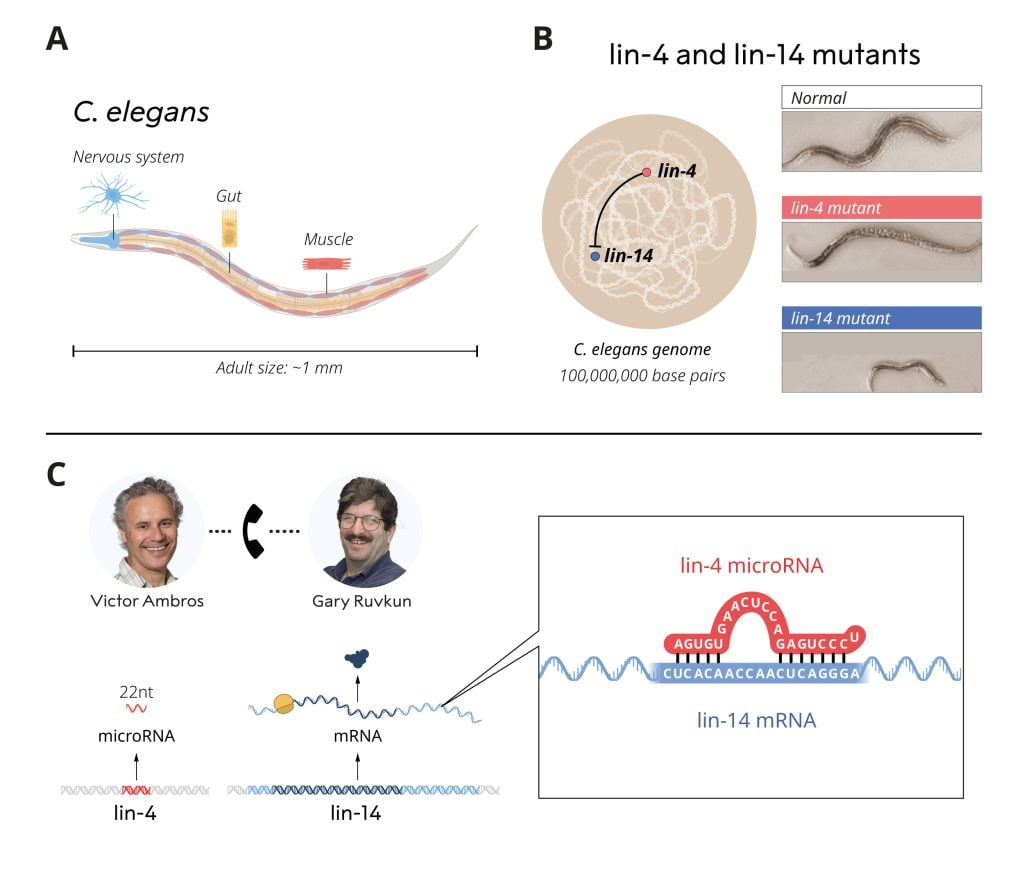Embracing change is not just an acceptance of the inevitable but a vital step toward personal growth and enhanced resilience in change. Research shows that individuals can undergo significant transformations throughout their lives, allowing for dramatic shifts in perspectives and behaviors, even in response to challenges. A fascinating Harvard Study sheds light on how our ability to adapt is crucial for psychological evolution and overall well-being. As we explore self-improvement strategies, it becomes clear that letting go of past comforts can lead to profound self-discovery and growth. Thus, engaging with change is essential for anyone seeking to enhance their life’s richness.
Navigating the currents of transformation is essential to achieving self-betterment. The concept of adapting to new circumstances isn’t merely about the act of altering habits; it delves into understanding the deeper implications of our evolving identities. The research conducted by Harvard scholars emphasizes that change can be both a driving force and a necessary response to life’s unpredictability. Recognizing the journey of psychological development invites us to reflect on the myriad ways in which we can cultivate our potential. Ultimately, the conversation around self-evolution encompasses recognizing our strengths and weaknesses while striving toward a more fulfilling existence.
The Power of Embracing Change in Personal Growth
Embracing change is integral to personal growth, allowing individuals to navigate through life’s unpredictabilities with greater resilience. The act of accepting change opens doors to new experiences and skills, broadening one’s perspective on life. In an era where the desire for self-improvement is prevalent, understanding the psychological evolution that comes with change becomes crucial. A Harvard study highlights that people possess an inherent capacity for change, supported by evidence that individuals can adapt and thrive even in midlife, challenging the myth that growth stalls after youth.
Moreover, psychological resilience plays a significant role in how well a person navigates change. Resilience in the face of change does not merely mean bouncing back from setbacks but often requires a proactive approach to redefining oneself. For those who actively pursue self-improvement strategies, this change becomes an empowering journey of rediscovery, allowing individuals to redefine their identities, relationships, and aspirations. Whether through setting personal goals or embarking on new endeavors, embracing change lays the foundation for meaningful growth.
Understanding Disillusionment in the Face of Change
Disillusionment often serves as a pivotal point in personal development, presenting a dual-edged sword of despair and opportunity. While it can lead individuals into a state of cynicism and withdrawal, as noted by Richard Weissbourd, it can also inspire a broader understanding of reality. This complexity underlines the necessity for frameworks that support psychological evolution through periods of disillusionment. As people encounter setbacks, engaging with this emotional turmoil can foster resilience and motivate further self-exploration.
Engaging with disillusionment doesn’t negate the desire for improvement; instead, it can serve as a catalyst for deeper self-reflection. People may find that the bittersweet lessons learned during tough times often lead to profound insights into their values and purpose. Developing a more encompassing understanding of oneself, while confronting the discomfort of disillusionment, can unveil pathways toward authentic growth, as individuals learn to navigate life with enhanced awareness and a commitment to evolving positively.
The Role of Resilience in Navigating Life Changes
Resilience is a critical trait that influences how individuals respond to life’s inevitable changes. In the context of self-improvement, building resilience helps individuals cope better with challenges and transitions. According to the insights shared by experts, those who embrace resilience are more likely to see change as an opportunity rather than a threat. This shift in perspective is essential for fostering personal growth and psychological evolution, making resilience a fundamental component in the self-improvement journey.
Moreover, incorporating resilience as a part of self-improvement strategies means actively developing coping mechanisms and support systems. For instance, individuals could engage in mindfulness practices or foster social connections that reinforce their ability to adapt. The Harvard study emphasizes that by understanding the psychology of resilience, individuals can cultivate a mindset that views change as an ally rather than an adversary, ultimately fueling their transformation into more competent and fulfilled versions of themselves.
The Impact of Intentional Change on Personal Evolution
Intentional change represents a conscious effort to redefine one’s personal narrative, aligning with the concept of self-improvement. Individuals may set specific goals, such as picking up new skills or altering daily habits, to promote personal growth. This proactive approach to change is not merely a reaction to external circumstances but rather a commitment to shaping one’s identity actively. Intentional change provides a roadmap for individuals seeking to evolve beyond their current limitations.
However, the act of pursuing intentional change also necessitates a level of vulnerability and reflection. By confronting ingrained habits and psychological biases, individuals can embark on a transformative journey that leads to significant personal evolution. As highlighted in the dialogue by the experts, the willingness to explore one’s inner world and embrace new experiences can yield profound insights and lasting growth. This illuminates the essence of intentional change: it creates intentionality in the way individuals envision and actualize their futures.
Cultivating Self-Acceptance Amidst Continuous Change
As individuals navigate the ever-changing landscape of life, cultivating self-acceptance becomes paramount. While the journey of personal growth often involves striving for self-improvement, recognizing and valuing one’s inherent worth is essential to mitigate the anxiety associated with change. The interplay between self-acceptance and the pursuit of change creates a balanced approach to personal evolution. Acceptance allows individuals to honor their past experiences while remaining open to future transformations.
Moreover, fostering self-acceptance serves as a buffer against the harsh judgments of oneself that are often magnified in cultures centered around achievement and success. As cited by various experts, this cultural focus can lead to diminished self-esteem and increased pressure to constantly change. Thus, nurturing self-acceptance not only facilitates healthier relationships with oneself but also empowers individuals to pursue changes from a place of strength and authenticity rather than fear or inadequacy.
The Intersection of Personal Change and Cultural Evolution
Cultural evolution plays a significant role in shaping personal change and growth. As societal norms and values shift, individuals experience a portfolio of influences that motivate them to adapt and evolve. The discussions surrounding change often highlight a push-pull dynamic between tradition and modernity, suggesting that people don’t just change in isolation; they are influenced by the ever-evolving cultural landscape. In this sense, personal growth is both a private endeavor and a reflection of broader societal transformations.
Understanding this intersection invites individuals to engage with their cultural contexts critically, recognizing both the positive and negative aspects of change. For instance, changes in societal attitudes toward issues such as gender equality and racial justice exemplify how collective progress impacts individual self-improvement strategies. This cultural backdrop can provide essential support during times of personal transition, reinforcing the notion that everyone is part of a larger evolutionary narrative that encourages growth and adaptability.
Navigating Psychological Biases in the Quest for Change
Psychological biases significantly influence how individuals respond to change and pursue personal growth. Research highlights that these biases, whether implicit or explicit, can shape perceptions of oneself and others, often leading to limitations in personal evolution. For example, implicit biases may lead individuals to dismiss their capacity for change, believing that the characteristics they’ve always held are immutable. This misconception can stifle the journey of self-improvement and undermine resilience.
Understanding psychological biases opens pathways to transformative change by empowering individuals to challenge their existing beliefs. By actively examining and confronting these biases, individuals can foster a mindset conducive to growth and adaptability. This process of self-reflection can create opportunities for change that align more closely with one’s goals and values, ultimately enhancing the potential for meaningful personal evolution.
The Influence of External Relationships on Personal Change
The relationships individuals maintain significantly impact their willingness and ability to embrace change. Supportive networks provide encouragement, motivation, and accountability, all of which are essential for fostering resilience and facilitating personal growth. Conversely, toxic or stagnant relationships can foster environments of negativity, making it challenging for individuals to pursue meaningful change. The dynamics of external relationships thus serve as a critical variable in the pursuit of self-improvement strategies.
Furthermore, the nature of interpersonal connections and how they evolve is a reflection of an individual’s own personal journey. Developing deeper, more meaningful relationships often requires individuals to confront their own biases, fears, and insecurities, prompting necessary internal changes. As individuals embrace change within themselves, they may also find that their relationships transform in tandem, reinforcing the idea that self-improvement is not solely an individual effort but also a collective endeavor.
Understanding the Myths of Change and Personal Identity
The perception that change is impossible or that one’s identity is fixed is a prevalent myth that can hinder personal growth. The belief that ‘you can’t teach an old dog new tricks’ often dissuades individuals from pursuing intentional change, reinforcing a cycle of stagnation. Understanding the psychological evolution supported by various studies, including those conducted at Harvard, reveals that identity is fluid and can evolve at any age, debunking the myth that change is exclusive to youth.
Recognizing the fluidity of identity encourages individuals to approach their lives with greater openness to change. Individuals can benefit from understanding that personal growth doesn’t require a complete departure from their past selves but rather an integration of experiences and lessons learned. By reframing their narratives, individuals can view themselves as dynamic beings capable of embracing new roles, perspectives, and ambitions, which inherently alters their self-concept across the lifespan.
Frequently Asked Questions
What does it mean to embrace change for personal growth?
Embracing change for personal growth involves accepting and adapting to new circumstances as a vital part of life. It is the recognition that change can lead to opportunities for development, increased resilience, and enhanced self-awareness. By leveraging strategies from the Harvard Study on Adult Development, individuals can learn to navigate their psychological evolution, turning challenges into self-improvement.
How can resilience in change impact personal development?
Resilience in change plays a crucial role in personal development as it helps individuals to withstand and recover from setbacks. Embracing adversity allows for psychological evolution and personal growth, fostering a mindset that sees change not as a barrier, but as a pathway to self-improvement. By cultivating resilience, one can thrive through transitions, ultimately leading to a more fulfilling life.
What are self-improvement strategies for those hesitant to embrace change?
Self-improvement strategies for individuals who are hesitant to embrace change include setting clear, achievable goals, practicing mindfulness, and actively seeking new experiences. Drawing insights from the Harvard Study, individuals can benefit from understanding their biases and learning how to manage their fear of the unknown. By gradually introducing changes and continuously reflecting on personal progress, one can ease into embracing change.
Why is psychological evolution essential in embracing change?
Psychological evolution is essential in embracing change as it reflects the ongoing development of our thoughts, attitudes, and behaviors throughout life. Research suggests that individuals can modify their implicit beliefs and biases over time, which is fundamental for thriving amidst life changes. Embracing this evolution helps in understanding oneself better, leading to greater adaptability and fulfillment.
What role does the concept of agency play in embracing change?
The concept of agency is crucial in embracing change as it empowers individuals to recognize their capacity for self-directed growth and adaptation. By understanding the importance of personal agency, individuals can take control of their responses to change, utilizing insights from resilience in change to proactively shape their life experiences and pursue self-improvement.
How does the Harvard Study on Adult Development inform our understanding of change?
The Harvard Study on Adult Development offers comprehensive insights into how individuals can embrace change throughout their lives. It highlights that change is ongoing and that adults are capable of significant psychological and emotional growth. The study emphasizes that self-perception and agency play critical roles in navigating these changes, proving that lifelong development is possible and beneficial.
What are some examples of how disillusionment can lead to embracing change?
Disillusionment can prompt individuals to embrace change by challenging them to rethink their perspectives and behaviors. For instance, someone who experiences a significant setback may become more open to new ideas and improvements in their life, using the experience to foster resilience. By reframing disillusionment as an opportunity for growth, they can enhance their personal development.
How can one cultivate a mindset that embraces change?
Cultivating a mindset that embraces change involves fostering openness to new experiences, practicing adaptability, and maintaining a growth-oriented perspective. Techniques such as visualization, setting flexibility goals, and engaging in reflective practices can enhance one’s ability to navigate changes effectively, as suggested by teachings from the Harvard Study.
What does it mean to ‘let go or be dragged’ in the context of embracing change?
The phrase ‘let go or be dragged’ emphasizes the importance of accepting change rather than resisting it. Embracing this concept means acknowledging that change is an inevitable part of life, and resisting it can lead to suffering. By letting go of old habits or fears, individuals can free themselves to grow and adapt positively in a changing environment.
Why do some people resist change while others embrace it?
Resistance to change can stem from various factors, including fear of the unknown, a desire for stability, or deeply rooted biases. Conversely, those who embrace change often possess a mindset open to new experiences and personal development. Individual temperament and cultural backgrounds also influence one’s receptiveness to change, as highlighted in discussions about psychological evolution and resilience.
| Key Points | Details |
|---|---|
| Change is Inevitable | Change occurs constantly, whether we like it or not. It is a part of our evolution as human beings. |
| Resistance to Change Causes Suffering | Robert Waldinger refers to the idea that resisting change results in personal suffering, highlighting the analogy ‘Let go or be dragged’. |
| Different Responses to Disillusionment | Individuals respond to disillusionment in two primary ways: by either becoming bitter and withdrawn or by developing a deeper understanding of reality and thriving. |
| Capability of Change Across Lifespan | Research shows that people are capable of making significant personal changes throughout their lives, regardless of age or circumstances. |
| Biases Can Evolve | Implicit biases can shift over time due to changing societal norms and personal experiences, emphasizing the importance of retaining agency in personal growth. |
| The Role of Stories | Personal narratives and diverse representations in media play a significant role in reshaping societal perceptions and biases. |
| Complex Relationship with Change | People have varying degrees of willingness to embrace change, influenced by temperament and cultural factors. |
Summary
Embracing change is a fundamental aspect of human existence. The ongoing evolution of our identities and experiences illustrates that change is not just inevitable but also essential for growth. As highlighted in the discussions from the Harvard Thinking podcast, acknowledging and accepting change can lead us to develop a deeper understanding of ourselves and our surroundings. In the face of inevitable transformations, it’s crucial to remain open and adaptive, as these attributes pave the way for personal development and fulfillment.



